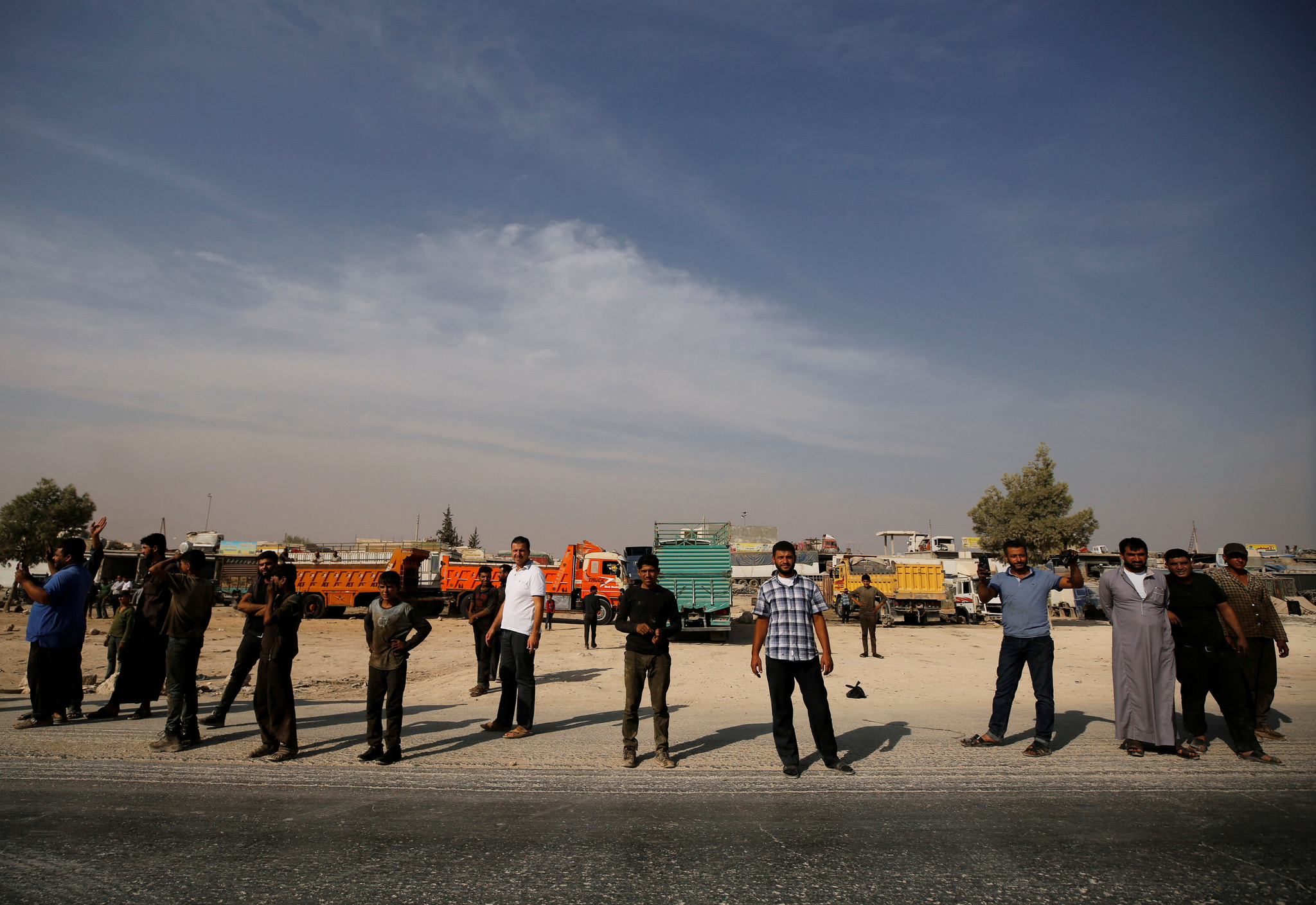- Turkish operation: Trump announces reprisals against Turkey for its intervention in Syria
- Syria, who is who on the Syrian battle stage
- Conflict. The Kurds, after agreeing with Syria to stop Turkey: "Assad will not respect anything, but will not slaughter us like Erdogan"
The video that a Russian reporter has released summed up the change of aegis that the Middle East attends these days. It showed the facilities of the base that the United States Army controlled until a few hours earlier in the vicinity of the town of Manbij, now occupied by Russian uniforms. "I'm at the American base right now. Let's see how they lived," the Russian informant is heard saying.
The presence of Russian forces in Manbij has been confirmed hours later by the Moscow Ministry of Defense, which has said that "military police" in his country have interposed between units loyal to Turkey and those sent to that enclave by the army Sirius.
"We are voluntarily withdrawing from northeastern Syria. We have already left Manbij," said an American official quoted by Reuters.
The same Russian ministry said that it is Bashar Asad's soldiers who dominate the strategic town, where hours ago there had been several skirmishes between Kurdish militias now supported by their new allies and Syrian paramilitaries fighting at the orders of Ankara.
Moscow has made it clear as it assumes the new role of factual power on the ground and its special envoy for Syria, Alexander Lavrentiev, was conclusive in saying that they will not "allow" any kind of confrontation between Ankara and the Arab nation. "We will not let that happen," said the Russian representative to clarify the meaning of his words.
Both the Russian and Turkish authorities recognize that they are maintaining contacts to try to reach an arrangement that avoids the risks that a military clash between Turkey and Syria would represent, although Moscow does not hide on which side its support would be tilted in case the crisis aggravate "The security of the entire Syrian-Turkish border has to be ensured by the deployment of Syrian government troops," Lavrentiev added after calling the Turkish invasion "unacceptable."
Despite statements by President Recep Tayyip Erdogan, most analysts agree that Ankara cannot embark on an open conflict with Moscow, whose military superiority is unquestionable.
In another of the war front, the militants of the Syrian Democratic Forces have regained control of most of the town of Rais el Ain, which limits the advance of Ankara to smaller villages and the city of Tel Abyad, despite that Erdogan himself specified on Monday that his goal was to occupy a wide swath of Syrian territory that should extend from the border with Iraq to areas that already dominate his allies in the east.
Kurdish media and the Syrian Human Rights Observatory have explained that the insurgents have managed to resist the rush of the Turkish army thanks to an extensive network of tunnels, following the same military tactic that popularized the Lebanese Hizbullah group in their fight against the uniformed Israel .
The collateral effects of the conflict are already beginning to be visible in Iraqi Kurdistan, where nearly 400 refugees arrived in the last two days. This last Kurdish autonomous region already hosts more than 200,000 escaped from the neighboring country. "We are preparing for the worst case scenario," admitted the religious Emanuel Youkhana, head of the Christian Aid NGO for Northern Iraq.
The flow of refugees could multiply in the next few days, since the displaced people inside Syria have been left almost without any assistance before the evacuation of the vast majority of NGOs operating in that area. "The humanitarian crisis was intensified by the cut of humanitarian aid , all international organizations have suspended their jobs and retired their employees," said a statement released by the Kurdish administration.
According to Youkhana, a well-known representative of the Assyrian Christian minority in the Kurdistan region - with notable contacts between their faith co-religionists in northeastern Syria - the war in that country has reached a point "in which one cannot think of that there is a faction or a good side. This is about choosing between the least bad. "
"The problem is that Erdogan says that his troops are the 'army of Mohamed', which is governed by an Islamic agenda, and that generates more fear among Kurds and Christians than the forces of the Syrian regime," he said.
According to the criteria of The Trust Project
Know more- Syria
- Turkey
- U.S
- Russia
- Iraq
- Refugees
- Bashar al-Assad
InterviewJens Stoltenberg: "Turkey has to contain itself and avoid civilian casualties"
The New York Times publishes evidence that Russia bombed hospitals in Syria
War who is who on the Syrian battle stage

